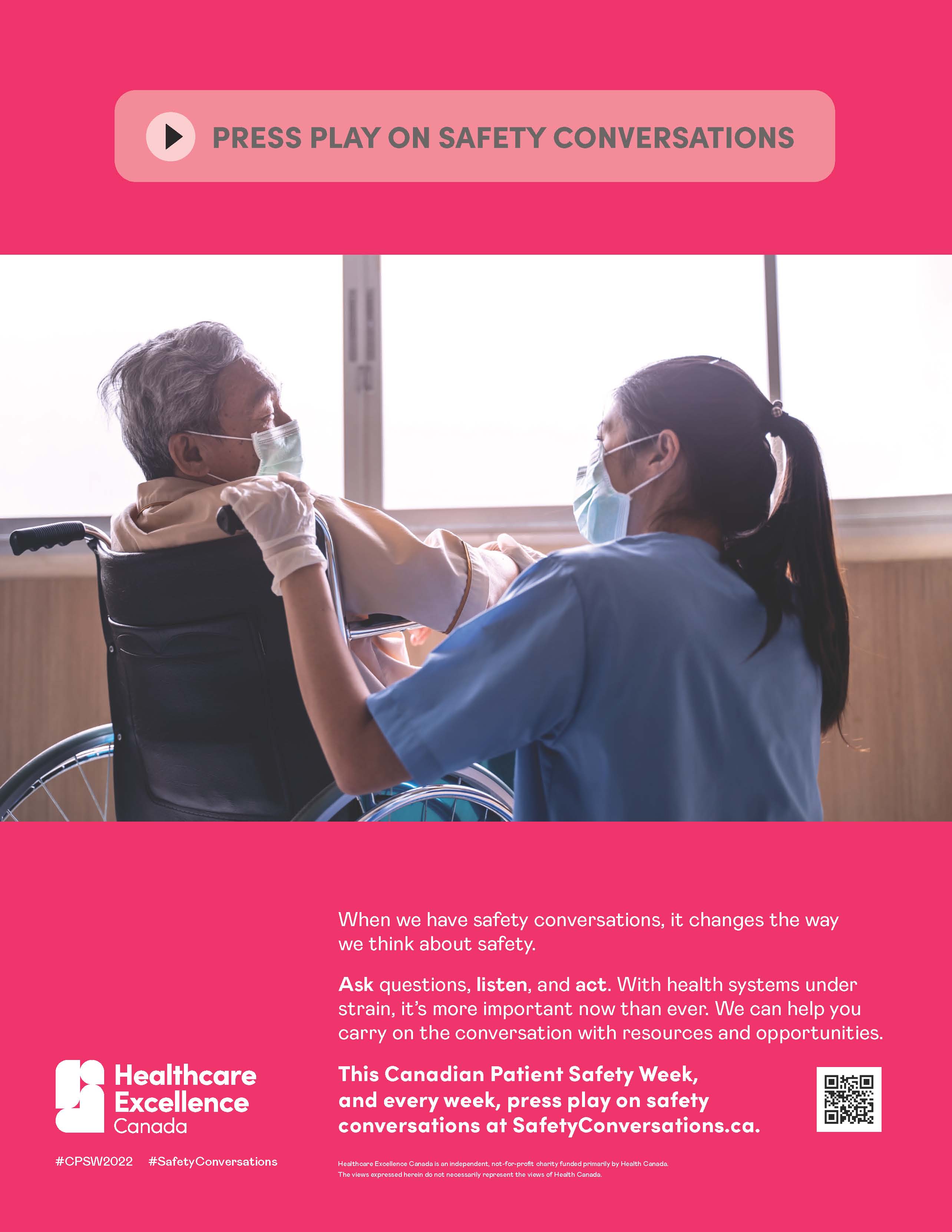Quality & Safety
At CPDMH, quality and safety are key priorities. Patients and families are partners in their own care and we encourage you to ask any questions you have during your time at CPDMH.
PATIENT SAFETY WEEK 2022

Canadian Patient Safety Week 2022 runs from October 24th through October 28th. The theme this year is “Press Play on Safety Communication”.
Safety conversations are important discussions between patients, residents, family members, essential care partners and members of the health care team. Having these conversations ensures that you are a partner in your care and that you can make informed decisions which are best for you.
Across the Mississippi River Health Alliance, one of the many opportunities to have a safety conversation with your health care team is at Bedside Shift Report. Safe handover of care occurs at every shift change and care transition. Please don’t be shy, speak up, ask questions, listen and participate!
As an early response to COVID-19, many health and care facilities across the country implemented visitor restrictions practices that prohibited Essential Care partners from being physically present as partners in care. The impacts as a result of these restrictions have been widely experienced by those receiving care, their caregivers and staff alike. As the pandemic continues to evolve across the country, these restrictions are changing to have Essential Care Partners safely re-integrated.
An Essential Care Partner is a support person whose presence is considered essential to the safety and well-being of a patient or resident while they are in the hospital or a long-term care facility. An Essential Care Partner is different from a social visitor. Essential Care Partners can be family members, close friends or any person identified by the patient or resident. Essential Care Partners are vital members of the care team who provide consistent support to a patient or resident throughout their care journey – improving safety, care, and the well-being of all involved.
There are many ways an Essential Care Partner could offer support.
Some examples include:
• supporting their decision making
• providing emotional and cognitive support
• being a part of planning their care
• helping them use technology to connect with friends or loved ones
• helping them eat, move around, bath, communicate etc.
• participating in patient and family education
• letting the care team know when they see a change in the patient or resident
Myth: The presence of essential care partners is nice to have, but doesn’t impact quality or safety
Fact: Having Essential Care Partners recognizes the mutually beneficial partnership between patients, residents and healthcare providers.